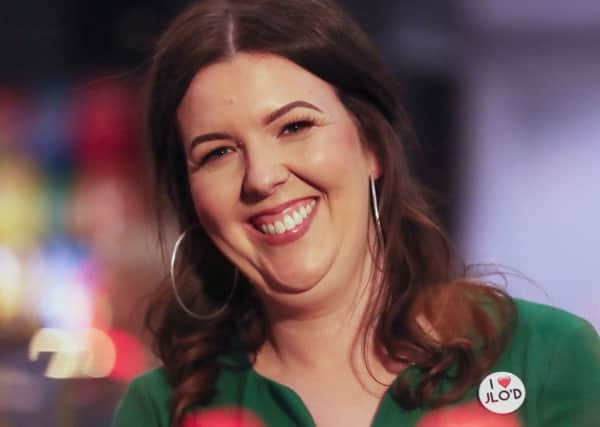Why Fleabag and Derry Girls have ushered in a new wave of edgy feminist comedy


Waller-Bridge’s grief-stricken café-owner was an anti-heroine for our times. Her dark, visceral, original comedy single-handedly reinvented the British sitcom. It captured the public imagination, making us laugh at the absurdities of modern existence whilst challenging the conventions of a previously male-dominated genre.
In this week’s Radio Times poll to discover the best Brit-com of all time, Fawlty Towers topped a list compiled by 42 experts, beating other series such as Father Ted, I’m Alan Partridge and The Rise and Fall of Reggie Perrin. I’m a big admirer of all these shows, but Fleabag soared into another stratosphere altogether.
Advertisement
Hide AdAdvertisement
Hide AdLike John Cleese’s masterpiece, it has lasted only two series. My prediction is it will similarly endure for decades to come, going down in comedy folklore as a subversive classic.
Which will come as a shock to all those misogynists who continue to trot out that tired, tedious, women-aren’t-funny cliché. You know the type – those puffy red-faced chaps who grumble that ensuring TV panel shows are not all-male is political correctness gone mad.
This sexist nonsense has persisted throughout history. In Medieval times, female laughter was regarded as a sign of immorality. In 1970, the year Cleese got the idea for Fawlty Towers after staying in a chaotic Torquay hotel with his fellow Pythons, the writer Reginald Blyth declared that “women not only have no humour in themselves, but are the cause of its extinction in others.”
The gender imbalance in Britcomland between men and women, the result of a long-established institutional sexism, has been challenged by a new wave of edgy, ground-breaking, feminist comedy. In my opinion, the rip-roaringly funniest shows of the past few months have been Derry Girls, which sadly bowed out on Tuesday, Catastrophe and Fleabag. All written by women – Lisa McGee, Sharon Horgan (with the wonderful Rob Delaney) and Waller-Bridge – and all featuring awkwardly-written female leads unafraid to confront the dark secrets of the human condition.
Advertisement
Hide AdAdvertisement
Hide AdApart from Waller-Bridge, Fleabag has paraded the outstanding acting talents of Olivia Coleman, Sian Clifford, Kristin Scott Thomas and Fiona Shaw. In the writer’s other critically-acclaimed hit, Killing Eve, the cat-and-mouse dynamic between Sandra Oh and Jodie Comer has been, in turns, chilling and hilarious.
The funniest moments of Fleabag have tended to be Phoebe’s deadpan asides to the camera, often underlined by a conspiratorial smirk. This breaking-the-fourth-wall device is a well-worn narrative trope. From Shakespeare and Aristophanes to the Marx Brothers and Morecambe and Wise, through Michael Caine in Alfie and Francis Urquhart in the House of Cards, such asides have often been used to progress the plot or provide an insight into one of the characters’ motives.
But in Waller-Bridge’s fresh, funny, razor-sharp writing, they have been used to undermine the rules of “proper” storytelling. With great wit and, yes, often vulgar humour, Fleabag fearlessly addressed the contradictions of anxious, young, millenial women. She stole, she swore, she manipulated and she cheated. She was often a “bad feminist”, expressing forbidden thoughts and being constantly drawn to masochistic affairs.
She was more than just a posher, more fashion-conscious, updated version of Bridget Jones. She was a troubled, flawed, grief-addled, damaged anti-heroine, navigating her way through the myriad, messy, almost impossible, complexities of 21st century life.
Advertisement
Hide AdAdvertisement
Hide AdWhen she looked at the camera for the last time, with a slight shake of her head and a knowing wave at her devoted audience, she was making peace with her guilt, her grief and her heartbreak and saying goodbye to a rule and taboo-breaking masterpiece, an ultimately uplifting show which will long be remembered as a work of absolute genius.
We’ll miss you, Fleabag.